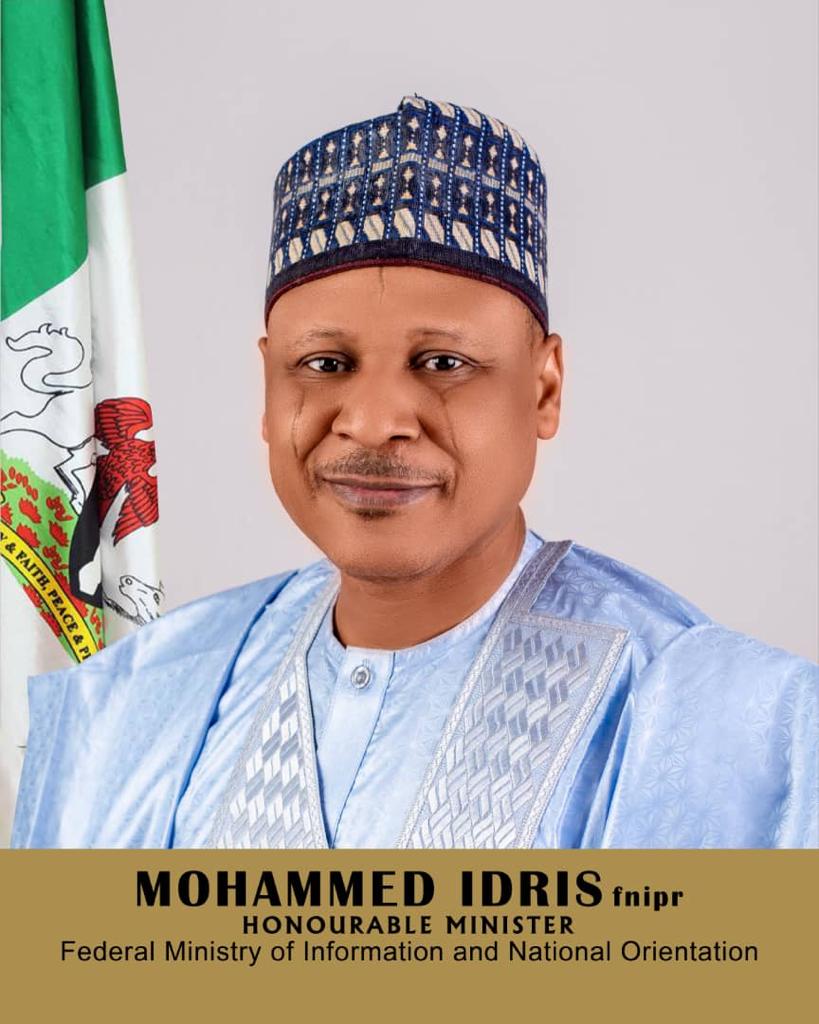Amidst the uproar and controversy surrounding the tax reform bills the Minister of Information and National Orientation, Mohammed Idris, said that President Bola Tinubu’s decision was not to undermine democracy.
By Sani Idris
Amidst the uproar and controversy surrounding the tax reform bills the Minister of Information and National Orientation, Mohammed Idris, said that President Bola Tinubu’s decision was not to undermine democracy.
Idris said this while giving an address at the Nigerian Institute of Public Relations (NIPR) 2024 Annual Public Lecture/AGM and Awards on Saturday in Kaduna.
The event, organised by the state chapter of NIPR, had the theme “Tax Reform: The Role of Public Relations In Fostering Constructive Dialogue For National Economic Renaissance”.
He said that worldwide, effective taxation was a source of financial power to the government to provide social services to its citizens.
Idris emphasised that the nation’s tax administration system was long overdue for reforms on account of design and implementation flows.
He, therefore, said the ongoing review of the country’s tax laws was timely and crucial especially as part of a larger state of macroeconomic reforms aimed at setting the country on an irreversible path of growth and development.
Idris said that Tinubu has made it clear that the executive would listen to and work with all the stakeholders to ensure that all concerns are duly and comprehensively addressed.
He said, “Even with our keenness for fundamental reforms of Nigeria’s tax system, Tinubu’s administration will never do anything to undermine the ideals of participatory democracy.
“Tinubu has always upheld the interest of all Nigerians wherever they are in this reform agenda that he has embarked upon.
“We will continue to ensure open lines of communication and engagement with the national assembly, as Tinubu always says.”
The minister said as the president continues to implement a physical reforms agenda for the country that would divulge more resources to the Nigerian states, citizens’ engagement would continue to take place.
As the minister who manages communication for the Federal Government, Idris restated his commitment to continue deploying innovative and comprehensive mechanisms.
According to him, this is to provide the public with insights and enlightened information that would foster public trust and confidence in the reform narratives of the renewed hope agenda.
Idris commended Nigerians for expressing their opinions on the tax reform which is of critical national importance, adding that it was a display of what democracy should be.
He also commended NIPR for providing the platform for Nigerians to engage and deliberate on the issues that concern them.
Gov. Uba Sani said his administration has taken measures to make Kaduna State an investment destination in the country, boosting the economy and creating more jobs.
The Executive Chairman of the Federal Inland Revenue Service, Zacch Adedeji, said that the tax reforms were to streamline the nation’s fiscal framework and improve operational efficiency.
Adedeji doubles as the Chairman, Presidential Fiscal Policy and Tax Reform Committee.
Adedeji, represented by Kehinde Kajesomo, Deputy Director, Federal Inland Revenue Service (FIRS), said the Federal Government’s introduction of the reforms seek to correct structural imbalances.
He said, ”This is particularly an over-dependence on oil revenues, which has resulted in fiscal challenges, encouraged corruption, stirred regional tensions, and fostered an inefficient rentier economy amid soaring debts”
Adedeji emphasised that the bills would collectively improve Nigeria’s revenue profile and make the business environment more conducive and internationally competitive, transforming the tax system to support sustainable development.
A renowned cleric, Sheikh Ahmad Gumi, commended NIPR for stimulating the national discourse, adding, ”it is not only tax that is needed to be reformed in Nigeria, but all other sectors needed it.”
Also, the former Chairman of the Christian Association of Nigeria (CAN), Rev. John Hayab, said that the Holy Bible encourages the payment of tax.
He lamented that tax was being seen as an exploitation by Nigerians, adding that the issues of trust deficit must be addressed in order to make progress in the country.
Earlier, the President of NIPR, Dr Ike Neliaku, said the event was to avail the citizens with an opportunity to join the conversation on what concerns them.
He added that it was to take the citizens’ inputs on the tax reforms which have generated so much controversy.
Neliaku emphasised that the tax
reform was essential for the nation’s growth and development, adding,” tax reform is not just about policy, but about the people.
“It is about creating a narrative that resonates with the citizens, businesses, and the stakeholders.
”It is about fostering constructive dialogue that builds trust, promotes understanding, and encourages participation.”
Also, the Chairman of NIPR, Kaduna State chapter, Haroun Malami, said Nigeria faces significant challenges across various socio-economic dynamics.
Malami said the conversation sought to interrogate the challenges, with pertinent questions.
He said,”The questions include; How to rebuild credibility; how to foster resilience and how to work together to create an economic future that would be of benefit to all Nigerians.”
The chairman emphasised that
effective governance was the backbone of any successful nation.
Malami said, “In Nigeria, the relationship between government and citizens is crucial in building trust, credibility, and ultimately a prosperous society.
“This is where public relations comes in. As practitioners, we have a unique role to play in shaping the conversation around the ongoing conversations about tax reform.
”We must use our skills to understand the issues, craft compelling narratives, build coalitions and facilitate dialogue that drives positive change,”.
According to him, public relations is about building and maintaining relationships, fostering open communication, and promoting mutual understanding.
In the context of
governance, Malami explained that public relations helps to provide timely information.
”This is by which government agencies can demonstrate their commitment to transparency and accountability which is essential to good governance in building trust and credibility.
“Public Relations helps government agencies to respond effectively to crises, mitigate reputation damage and maintain a positive image,”he said. (NAN)




